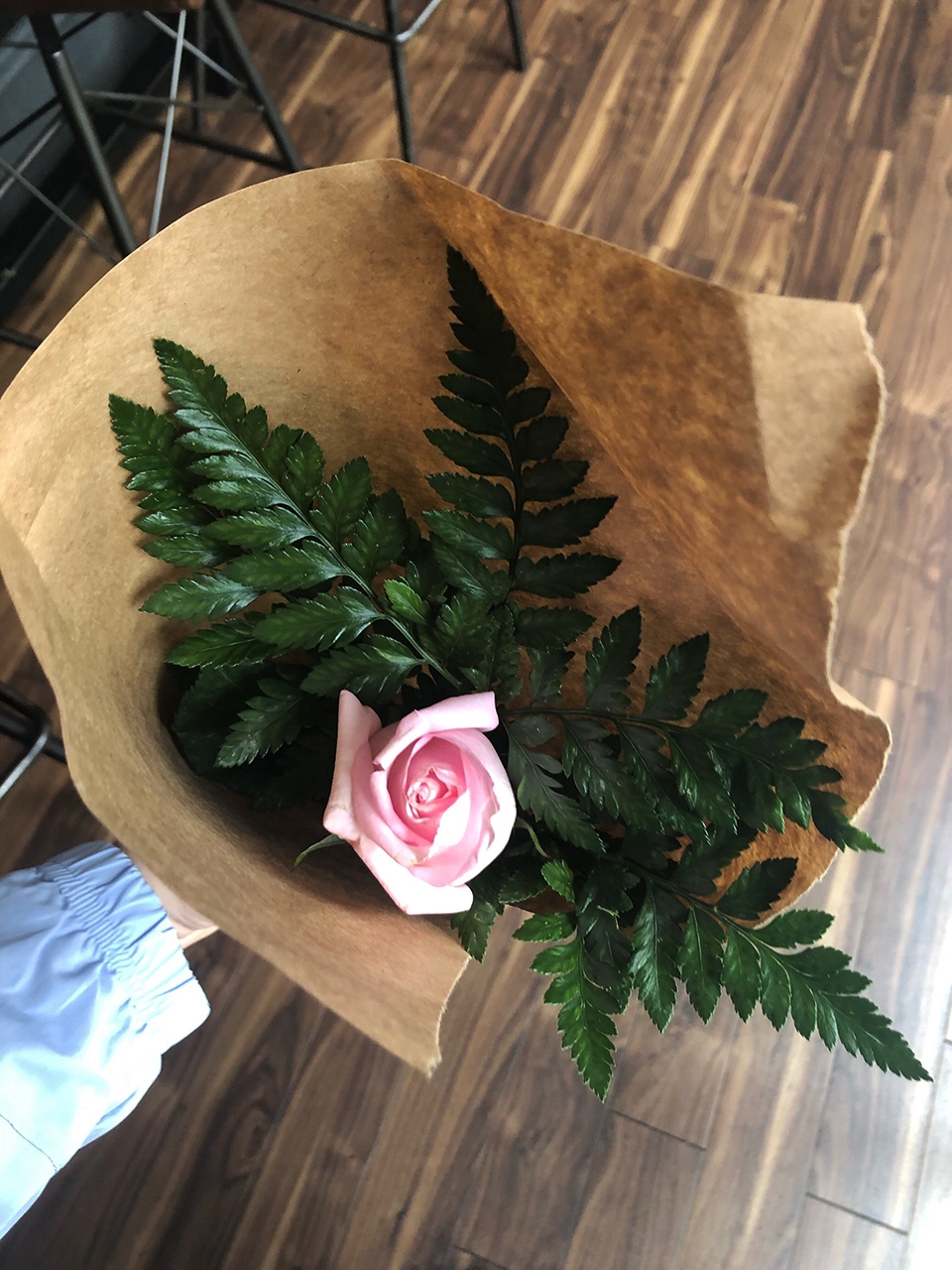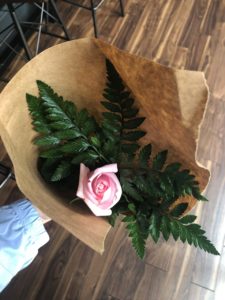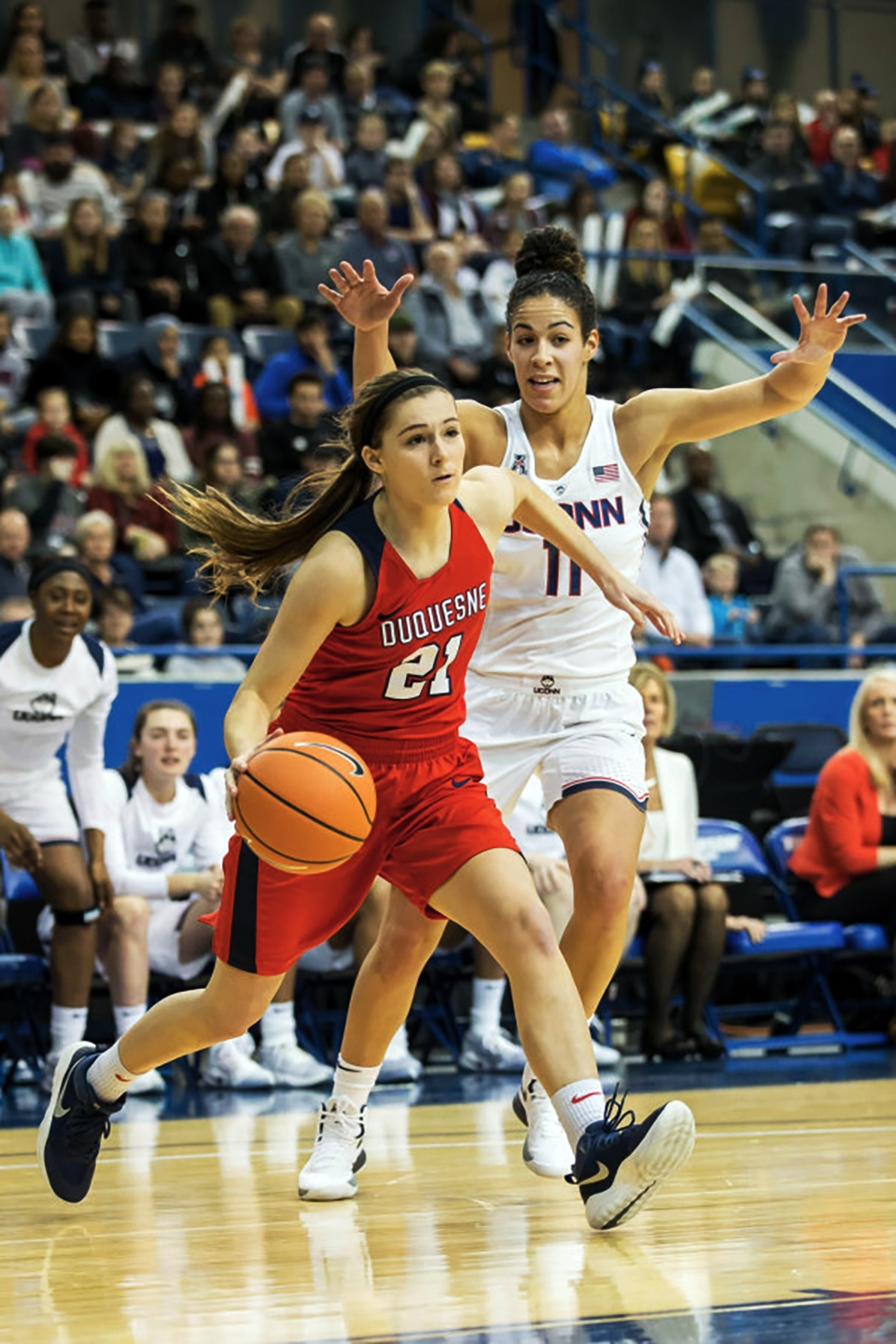
04/11/19
Grace Rosello | Staff Writer

J sells flowers to be able to afford a place to stay for the night.
Writers from The Duke went into the city to gather the stories and opinions of people without homes. Duquesne University is located between Uptown and Downtown, where there’s a significant population of homeless individuals. This week, J and Elizabeth spent some time talking to us about their experiences and struggles of being homeless in Pittsburgh.
I meet J on the steps of the Smithfield United Church of Christ where she is selling roses. J is a woman with soft green eyes and a circle of light brown around each black pupil. She has long gray, hair streaked with white flyaways, a ruddy complexion and a quiet voice that is sometimes difficult to hear.
J has spent most of her life in Pittsburgh. Her father worked in stores. Her mom worked, too — the whole family worked. They were a family of love. They would spend time together at Kennywood, and other days, they would ride horses or go bowling. J was the class clown, and she liked sewing. She didn’t finish high school, but she got her GED later in life.
Eventually, J was married at least twice. She had four sons, who are now in their forties with their own families. Over the years, she has worked a variety of jobs. Her first job was at a grocery store. She sold ice cream for three years and worked in a motel for four. Once, she worked in a greenhouse in “the outskirts.”
With her gentle demeanor and tanned face, I can imagine her in a plant nursery with a glass roof, lugging bags of soil and placing seeds into terracotta pots. She loves flowers. Now, she sells them every day to people on the street.
Each morning J wakes up and has to “get with it,” even on the nights when she has not slept. She spends the day selling flowers. If she sells enough of them, she rents a motel room for the night. J chooses “any of them that are cheap.”
“I can’t take one more night out,” she admits, shaking her head.
She then explains her difficulty in finding more permanent housing. “Sometimes [the shelters] call me and say I don’t make enough money and can’t live there, same with the apartments.”
A flash of a white bird flies through the alleyway across the street. J points out how pretty it is.
J shares that she is “getting her life together.” She doesn’t see family much. According to J, her family “took [her] apartment, tore it up.” She says that she doesn’t have any hostile feelings toward them, and that, all in all, they “do the best [they] can together.”
Previously, J was her ill sister’s caretaker. Her sister, Rose, had “messed-up toenails” — in fact, she had no toenails. J cared for her sister for one year and seven months. She cooked for Rose, made her Jell-O drinks, cleaned for her. Eventually, Rose’s toenails grew back. J encouraged her sister to lose weight too. Over time, their relationship diminished. J began spending a few days up to a full week away from her sister’s needs, staying in motels.
J left Rose to move in with another sister. At this sister’s house, J cleaned black mold, the deadly mold that comes from dampness and causes symptoms of coughing, sneezing, irritation in the eyes, fatigue and constant headaches. Their relationship ended in an argument concerning the care of the sister’s dog. Frustrated, having “cleaned the whole house” just before, J left without a place to go.
“We still care about each other,” J attests. “[I] don’t let her know where I am.” J once tried to talk to her, but wasn’t able to make contact.
J brings flowers to acquaintances when she has made enough money during the day for a motel room. She brings roses to a bartender and sunflowers to a barefoot guy whom she met at a barbecue joint. She likes some people up in the Hill District for whom she works for once in a while. J would like a sewing machine and an acoustic guitar.
She hopes one day to return to selling ice cream.
This story is part of the Duquesne Duke series titled “Faces of Homelessness,” where Duke writers go into the community and ask people without homes about their stories. We aim to focus specifically on their opinions and perspectives on social and political issues, locally and nationally. We believe that every opinion matters, and that theirs should be told. We hope this series will impact the Duquesne and Pittsburgh communities positively, offering those without a home the chance to have their voices heard. Hopefully, we all will listen.




